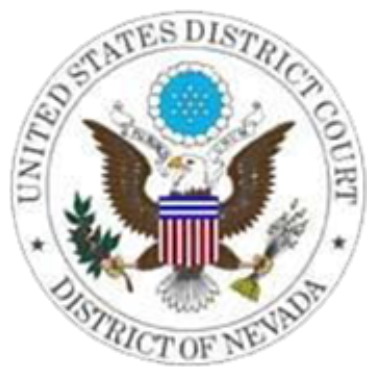External links
| | This article about Canadian law is a stub. You can help Wikipedia by expanding it. |
Rudder v. Microsoft Corp. [1999] OJ No 3778 (Sup Ct J). is an Ontario Superior Court case that is the leading decision on clickwrap licenses and forum selection clauses in Canada.
Rudder brought a class action on behalf of MSN subscribers in Canada for, among other things, improperly charging MSN subscriber's credit cards violating the terms of the contract.
Microsoft filed to dismiss the class action on the grounds of forum non conveniens. They argued that the contract between them and the subscribers contained a forum selection clause which gave exclusive jurisdiction to Washington state to resolve any disputes.
Rudder argued that the particular clause was not valid as it was not adequately brought to the attention of the user. The provision was sufficiently important that it required special notice.
Justice Warren Winkler found in favour of Microsoft and held that the clause was enforceable. Winkler rejected Rudder's argument, stating that "Admittedly, the entire Agreement cannot be displayed at once on the computer screen, but this is not materially different from a multi-page written document which requires a party to turn the pages."
Winkler observed that users were required to click on the "I agree" button to accept the terms, and that the impugned clause was no harder to read than any of the others. The sign-up procedure itself required users to click "I agree" twice, where the second time the user was told that they would still be bound to the terms even if they do not read them all. Winkler did not find it reasonable for Rudder to argue for the enforcement of all the other terms of the contract except for the forum clause. A finding in favour of the plaintiff, said Winkler, would not advance the goals of commercial certainty.
In concluding, Winkler held that "click-wrap" agreements in general should be "afforded the sanctity that must be given to any agreement in writing."
| | This article about Canadian law is a stub. You can help Wikipedia by expanding it. |
Arbitration, in the context of the law of the United States, is a form of alternative dispute resolution. Specifically, arbitration is an alternative to litigation through which the parties to a dispute agree to submit their respective positions to a neutral third party for resolution. In practice arbitration is generally used as a substitute for litigation, particularly when the judicial process is perceived as too slow, expensive or biased. In some context, an arbitrator may be described as an umpire.
An end-user license agreement is a legal contract entered into between a software developer or vendor and the user of the software, often where the software has been purchased by the user from an intermediary such as a retailer. A EULA specifies in detail the rights and restrictions which apply to the use of the software.
Terms of service are the legal agreements between a service provider and a person who wants to use that service. The person must agree to abide by the terms of service in order to use the offered service. Terms of service can also be merely a disclaimer, especially regarding the use of websites. Vague language and lengthy sentences used in the terms of use have brought concerns on customer privacy and raised public awareness in many ways.

A standard form contract is a contract between two parties, where the terms and conditions of the contract are set by one of the parties, and the other party has little or no ability to negotiate more favorable terms and is thus placed in a "take it or leave it" position.
A clickwrap or clickthrough agreement is a digital prompt that offers individuals the opportunity to accept or decline a digitally-mediated policy. Privacy policies, terms of service and other user policies, as well as copyright policies commonly employ the clickwrap prompt. Clickwraps are common in signup processes for social media services like Facebook, Twitter or Tumblr, connections to wireless networks operated in corporate spaces, as part of the installation processes of many software packages, and in other circumstances where agreement is sought using digital media. The name "clickwrap" is derived from the use of "shrink wrap contracts" commonly used in boxed software purchases, which "contain a notice that by tearing open the shrinkwrap, the user assents to the software terms enclosed within".

A forum selection clause in a contract with a conflict of laws element allows the parties to agree that any disputes relating to that contract will be resolved in a specific forum. They usually operate in conjunction with a choice of law clause which determines the proper law of the relevant contract.

An arbitration clause is a clause in a contract that requires the parties to resolve their disputes through an arbitration process. Although such a clause may or may not specify that arbitration occur within a specific jurisdiction, it always binds the parties to a type of resolution outside the courts, and is therefore considered a kind of forum selection clause. It is also known as the "Scott v Avery Clause".

In contract law, a non-compete clause, or covenant not to compete (CNC), is a clause under which one party agrees not to enter into or start a similar profession or trade in competition against another party. Some courts refer to these as "restrictive covenants". As a contract provision, a CNC is bound by traditional contract requirements including the consideration doctrine.

Specht v. Netscape, 306 F.3d 17, is a case in the United States Court of Appeals for the Second Circuit regarding the enforceability of browse-wrap software licenses. The court held that merely clicking on a download button does not show assent to license terms if those terms were not conspicuous and if it was not explicit to the consumer that clicking meant agreeing to the license.

L'Estrange v F Graucob Ltd [1934] 2 KB 394 is a leading English contract law case on the incorporation of terms into a contract by signature. There are exceptions to the rule that a person is bound by his or her signature, including fraud, misrepresentation and non est factum.
Browse-wrap is a term used in Internet law to refer to a contract or license agreement covering access to or use of materials on a web site or downloadable product. In a browse-wrap agreement, the terms and conditions of use for a website or other downloadable product are posted on the website, typically as a hyperlink at the bottom of the screen. Unlike a clickwrap agreement, where the user must manifest assent to the terms and conditions by clicking on an "I agree" box, a browse-wrap agreement does not require this type of express manifestation of assent. Rather, a web-site user purportedly gives their consent simply by using the product — such as by entering the website or downloading software.

A contract is a legally binding document between at least two parties that defines and governs the rights and duties of the parties to an agreement. A contract is legally enforceable because it meets the requirements and approval of the law. A contract typically involves the exchange of goods, service, money, or promise of any of those. "Breach of contract", means that the law will have to award the injured party either the access to legal remedies such as damages or cancellation.

Register.com v. Verio, 356 F.3d 393, was a decision of the United States Court of Appeals for the Second Circuit that addressed several issues relevant to Internet law, such as browse wrap licensing, trespass to servers, and enforcement of the policies of the Internet Corporation for Assigned Names and Numbers (ICANN). The decision upheld the ruling of a lower court which prevented a provider of web development services from automatically harvesting publicly available registration data from a domain name registrar's servers for advertising purposes.
Southland Corp. v. Keating, 465 U.S. 1 (1984), is a United States Supreme Court decision concerning arbitration. It was originally brought by 7-Eleven franchisees in California state courts, alleging breach of contract by the chain's then parent corporation. Southland pointed to the arbitration clauses in their franchise agreements and said it required disputes to be resolved that way; the franchisees cited state franchising law voiding any clause in an agreement that required franchisees to waive their rights under that law. A 7-2 majority held that the Federal Arbitration Act (FAA) applied to contracts executed under state law.
Disputes between consumers and businesses that are arbitrated are resolved by an independent neutral arbitrator rather than in court. Although parties can agree to arbitrate a particular dispute after it arises or may agree that the award is non-binding, most consumer arbitrations occur pursuant to a pre-dispute arbitration clause where the arbitrator's award is binding.

In re Zappos.com, Inc., Customer Data Security Breach Litigation, 893 F. Supp. 2d 1058, was a United States District Court for the District of Nevada case in which the Court held that Zappos.com's customers were not held to the browsewrap terms of use because of their obscure nature. The courts also held that the agreement was unenforceable because Zappos had reserved the right to change it at any time without informing the customers. This court decision set a precedent for businesses that use browsewrap agreements and/or include a clause in their agreements that allow them to change the agreements at any time. The decision encouraged conversation on how a business should most fairly display its terms of use and how to avoid unfairness and ambiguity when writing them.

Microsoft Corp. v. Motorola Inc., 696 F.3d 872 was a United States Court of Appeals for the Ninth Circuit case about Reasonable and Non-Discriminatory (RAND) Licensing and foreign anti-suit injunction.
Nguyen v Barnes & Noble, Inc., 763 F.3d 1171, was a United States Court of Appeals for the Ninth Circuit decision in which the Court ruled that Barnes & Noble's 2011 Terms of Use agreement, presented in a browsewrap manner via hyperlinks alone, was not enforceable since it failed to offer users reasonable notice of the terms. The decision set an important precedent on the future design and presentation of online contracts for consumer-facing e-commerce sites.

Cavendish Square Holding BV v Talal El Makdessi[2015] UKSC 67, together with its companion case ParkingEye Ltd v Beavis, are English contract law cases concerning the validity of penalty clauses and the application of the Unfair Terms in Consumer Contracts Directive.
Epic Systems Corp. v. Lewis, 584 U.S. ___ (2018), was a case decided by the Supreme Court of the United States on how two federal laws, the National Labor Relations Act (NLRA) and the Federal Arbitration Act (FAA), relate to whether employment contracts can legally bar employees from collective arbitration. The Supreme Court had consolidated three cases, Epic Systems Corp. v Lewis, Ernst & Young LLP v. Morris (16-300), and National Labor Relations Board v. Murphy Oil USA, Inc. (16-307). In a 5-4 decision issued in May 2018, the Court ruled that arbitration agreements requiring individual arbitration are enforceable under the FAA, regardless of allowances set out within the NLRA.